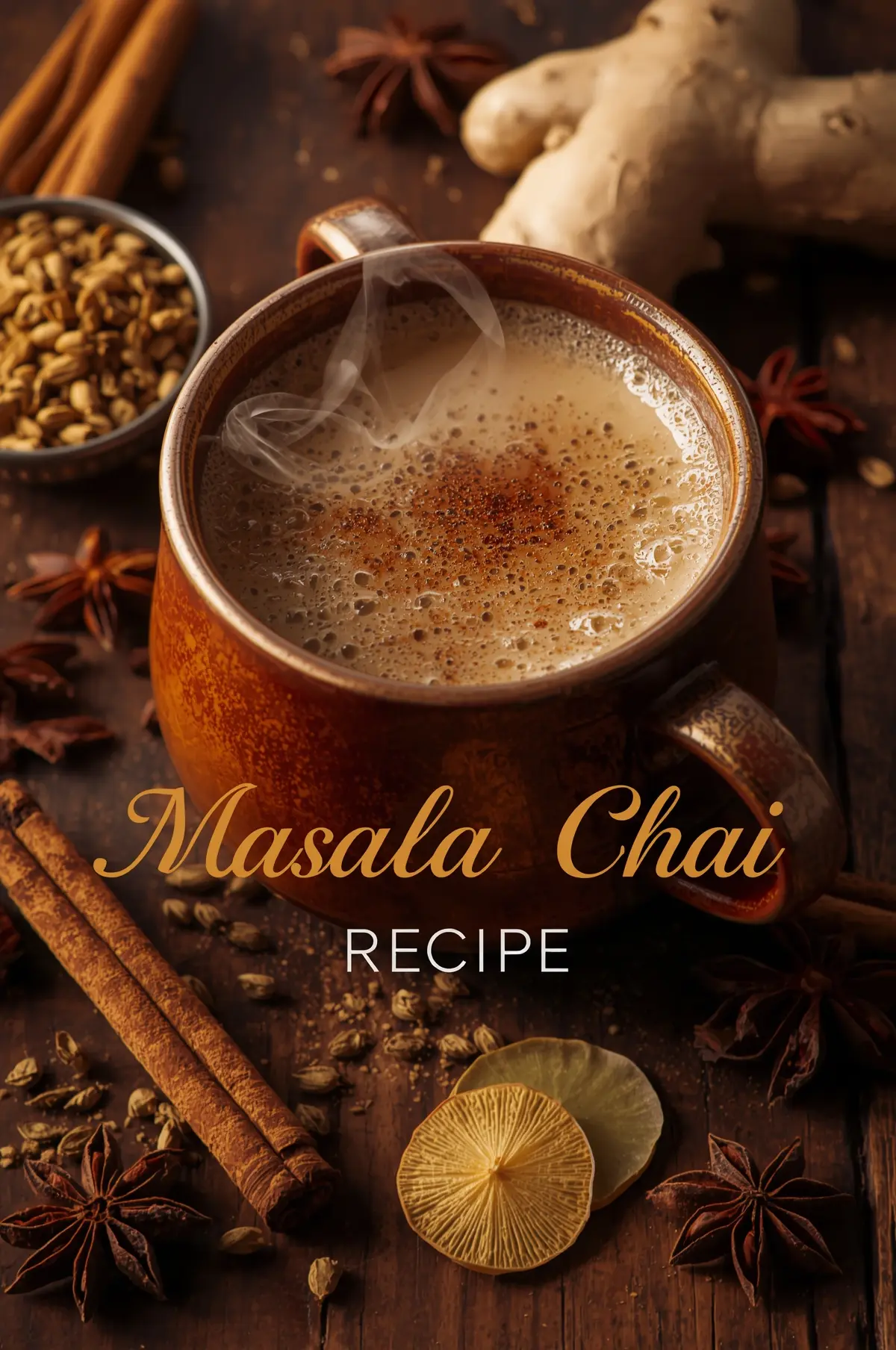Introduction
Masala chai is a fragrant and flavorful spiced tea that has been a beloved beverage in India for centuries. Combining black tea with a blend of aromatic spices, milk, and sugar, masala chai offers warmth, comfort, and a boost of energy. Making masala chai at home allows you to customize the spice blend to your taste, ensuring a perfect cup of this iconic Indian beverage anytime.
Ingredients
To make authentic masala chai, you’ll need:
- 2 cups water
- 1½ teaspoons black tea leaves (or 1–2 black tea bags)
- ½ cup milk (dairy or plant-based)
- 2–3 teaspoons sugar (adjust to taste)
- Spices (masala blend):
- 2 green cardamom pods
- 1 small cinnamon stick
- 2–3 whole cloves
- 1 small piece fresh ginger (sliced)
- Optional: 2–3 black peppercorns or a pinch of nutmeg
- PROFESSIONAL POWER: 1000 watts of professional power can crush ice and breakdown any tough ingredient.Power source : Cor…
- XL CAPACITY: The 72 oz professional blender pitcher is excellent for making frozen drinks and creamy smoothies for the e…
- INTELLIGENT TECHNOLOGY: Total Crushing Technology delivers unbeatable power with blades that pulverize and crush through…
Preparation Steps
- Crush the spices: Lightly crush cardamom, cloves, and peppercorns using a mortar and pestle. Slice fresh ginger.
- Boil water with spices: In a small saucepan, add 2 cups of water along with the crushed spices and ginger. Bring to a gentle boil and simmer for 3–5 minutes to extract the flavors.
- Add tea leaves: Add black tea leaves to the boiling spiced water and simmer for another 2–3 minutes.
- Add milk and sugar: Pour in milk and add sugar. Allow the mixture to heat until it almost comes to a boil, stirring occasionally.
- Strain and serve: Strain the masala chai into cups to remove the tea leaves and spices. Serve hot and enjoy the rich, aromatic flavors.
Authentic masala chai is more than just tea—it’s an experience of warmth, spice, and comfort. Brewing it at home lets you savor the perfect balance of tea, spices, and milk while enjoying a traditional Indian beverage that has stood the test of time.
Have you given our recipe a try?
0.0
0.0 out of 5 stars (based on 0 reviews)
Excellent0%
Very good0%
Average0%
Poor0%
Terrible0%
